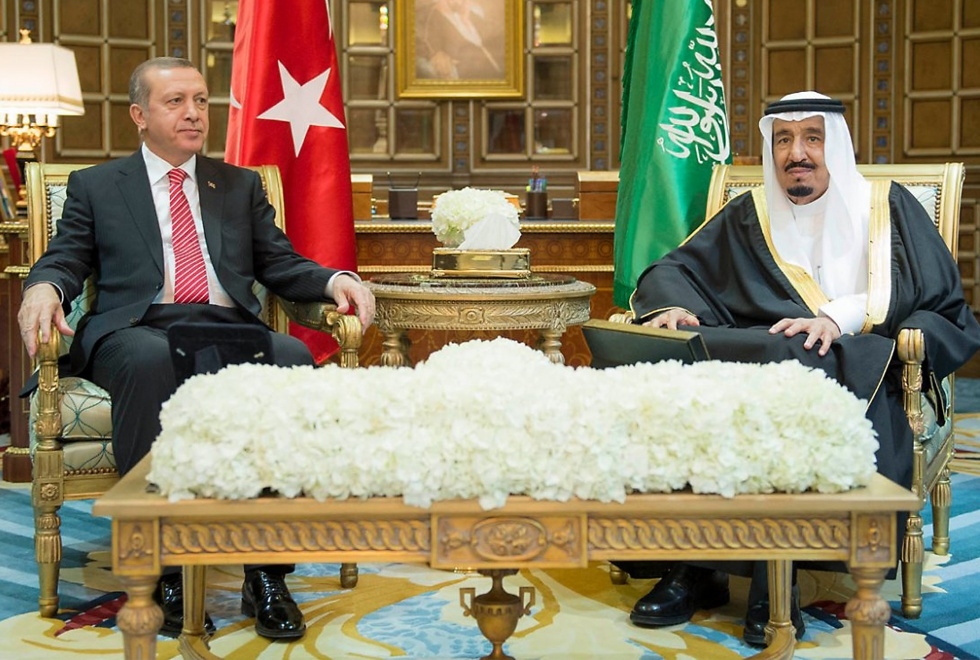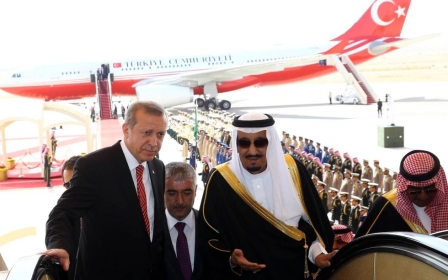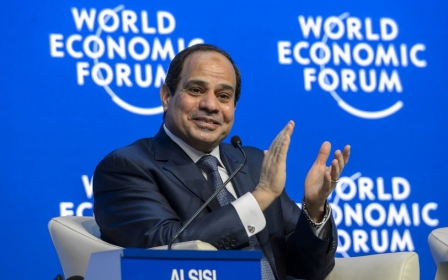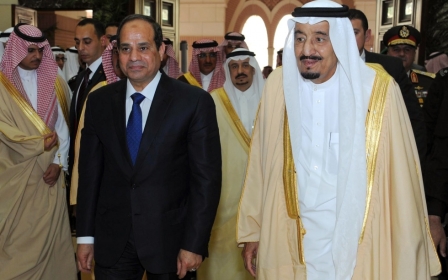Turkey-Saudi relations turn 'a new page', says top Turkish advisor

Relations between Turkey and Saudi appear to be on a major high this week, a shift which could have critical ramifications for peace and security in the entire region, the Turkish president's chief policy advisor said.
In an opinion piece published in Turkey's Daily Sabah on Wednesday, Ibrahim Kalin, Recep Tayypid Erdogan's chief advisor, said relations between the two are "at a commendable level but far from reflecting the true potential."
Highlighting the crises across the region, Kalin said that Turkey and Saudi Arabia had agreed to expand their bilteral relations which he said "will go a long way in confronting the current crises."
Kalin's comments, as well as those by Saudi commentators also highlighting the warming overtures, follow Erdogan's first visit as president, a position he took over last August, to Saudi Arabia on Monday where he met with the new Saudi monarch King Salman, successor of the late King Abdullah.
Erdogan's visit follows a period of tension between the two regional powers over Egypt, with Turkey backing deposed Muslim Brotherhood president Mohamed Morsi and the Saudis backing his successor Abdel Fattah el-Sisi.
In turn, Turkey’s relationship with Egypt soured after the Egyptian military ousted Morsi. Cairo accused Turkey of interference and supporting the Brotherhood, which Egypt designated as a terrorist organisation in December of the same year.
Saudi, on the other hand, has offered Egypt millions of dollars in aid. Even after damning leaks appeared to reveal Sisi ridiculing his Gulf backers and saying he despised them, King Salman told Saudi media that bilateral ties were "stronger than any attempt to disturb them."
But in recent weeks there has been speculation of a shift in Saudi's policy towards the Brotherhood after the country's foreign minister Saud bin Faisal said publicly that Riyadh has "no problem" with the group - which has raised bigger questions of Saudi's greater policy towards Egypt.
The reported goal of Monday's visit was to strengthen bilateral ties and find a way of overcoming differences on Egypt.
Erdogan told the Turkish daily Hurriyet that Saudi Arabia was keen that Turkey “make up with Egypt on a high level, but there is no insistence.”
“The real important issue for us it elevating Turkey-Saudi Arabia relations to a better level,” Erdogan added.
In his piece on Wednesday, Kalin said that close cooperation between Turkey and Saudi Arabia, following Monday's meeting, aimed to defuse tensions and counter sectarianism by discouraging extremism from spreading across region and by promoting regional peace.
"Turkey and Saudi Arabia believe that sectarian policies and communal strife have a big toll on the region and have to be replaced by a policy of regional peace and cooperation," Kalin wrote.
Saudi Arabia and Turkey have emerged as two of the most stable countries following the Arab uprisings and, with ongoing fighting in neighbouring countries, both are keen to maintain regional stability.
While Saudi Arabia relies on its ability to maintain allies through financial support and on its leading status among the Gulf countries to preserve stability, such as providing army troops to quell the protests in Bahrain, Turkey's position has favoured other forces, offering support to the Islamist parties which entered politics following the overthrow of dictatorships in Egypt, Tunisia and Libya.
Where the countries' foreign policies have aligned, they have sought to head a Sunni front against what they perceive to be the threat of Iranian hegemony by seeking out alliances with other countries in the region and supporting the Syrian opposition to President Bashar al-Assad.
However Riyadh and Ankara have diverged over which rebel groups to support in Syria's civil war.
Middle East Eye propose une couverture et une analyse indépendantes et incomparables du Moyen-Orient, de l’Afrique du Nord et d’autres régions du monde. Pour en savoir plus sur la reprise de ce contenu et les frais qui s’appliquent, veuillez remplir ce formulaire [en anglais]. Pour en savoir plus sur MEE, cliquez ici [en anglais].




